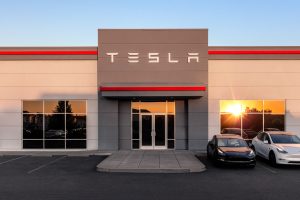Stellantis has issued a response to the UAW’s strike at the Sterling Heights Assembly Plant. The facility is among Stellantis’ most important as it produces the Ram 1500 pickup truck, arguably the most important model in the company’s lineup and one of the best-selling vehicles in the United States.
On Monday, 6,800 workers at the facility walked off the job as part of the UAW’s latest escalation in its efforts against the Detroit Big Three. In a statement, the UAW stated that Stellantis’ most recent offer was the “worst proposal on the table regarding wage progression, temporary worker pay and conversion to full-time, cost-of-living adjustments (COLA), and more.”
In a statement, Stellantis expressed its frustration at the ongoing strike, with the automaker going so far as to state that it was outraged by the protest at the Ram 1500 production facility. The automaker noted that when it discussed its latest offer with the UAW, it left the bargaining table with the expectation of a counter-offer. Stellantis also noted that the UAW’s strategy of wounding the Detroit Big Three would have long-lasting consequences.
Following is Stellantis’ full statement.
“We are outraged that the UAW has chosen to expand its strike action against Stellantis. Last Thursday morning, Stellantis presented a new, improved offer to the UAW, including 23% wage increases over the life of the contract, nearly a 50% increase in our contributions to the retirement savings plan, and additional job security protections for our employees. Following multiple conversations that appeared to be productive, we left the bargaining table expecting a counter-proposal, but have been waiting for one ever since.
“Our very strong offer would address member demands and provide immediate financial gains for our employees. Instead, the UAW has decided to cause further harm to the entire automotive industry as well as our local, state, and national economies.
“The UAW’s continued disturbing strategy of ‘wounding’ all the Detroit 3 will have long-lasting consequences. With every decision to strike, the UAW sacrifices domestic market share to non-union competition. These actions not only decrease our market share but also impact our profitability and, therefore, our ability to compete, invest, and preserve the record profit-sharing payments our employees have enjoyed over the past two years,” the automaker noted.





